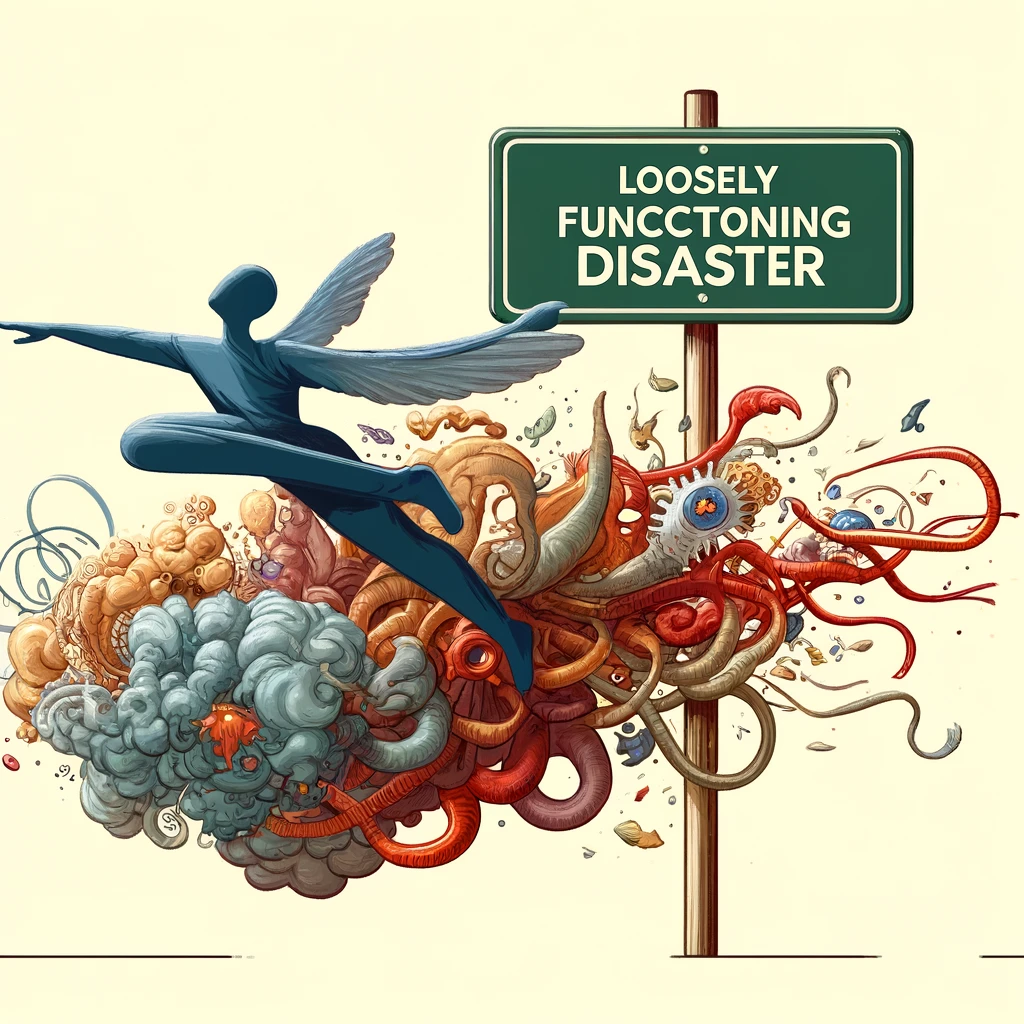Sometimes, the right quote can hit you at the right time in just the right way.
“Progress over perfection.”
That’s not it.
It’s not the quote, but it’s a phrase I’ve said a thousand times when things haven’t gone as planned. Truth be told, I’ve struggled to put that saying to work. I still harbor the illusion of control– not that I have control, but that things are controllable.
- If we could just do more or better, we’d figure out this… parenting thing, leadership challenge, attrition problem.
- If we could pull together an off-site, we could “fix” our generative AI strategy.
- If we just got the right people in the room, couldn’t we hammer out an approach to…
Some days, it can feel like nothing is working. To make matters worse, HBR articles and LinkedIn posts serve up case studies that suggest everyone else has it figured out. A competitor launches a new offering that you’ve been struggling to get into production. A coaching guru promises the secret to unlocking discretionary effort. Instagram showcases smiling families all wearing jeans and white shirts frolicking in the dunes, waiting to star in an Old Navy commercial.
It can be dispiriting… frustrating… almost paralyzing. You can compound your pain with what the Buddhists call the second arrow, the self-inflicted wound you get when you beat yourself up over a failure (perceived or real).
A few years ago, with some particularly vexing challenges hitting my desk and struggling to wrestle the second arrow out of my leg, I came across that exact right quote:
“All businesses are loosely functioning disasters, and some are profitable despite it. At 30,000 feet, the world is beautiful and orderly. On the ground, it’s chaotic and confusing. Nothing ever goes to plan. Surprises lurk around every corner. Things are constantly breaking. Someone is always upset. Mistakes are made daily. Expecting anything less is being out of touch with reality. And remember, just because you’re now aware of it doesn’t change reality. It was that way before, you just didn’t realize it.” – Brent Beshore
I had a worm’s-eye view of the business I was in with all of its seemingly intractable challenges. Beshore, a writer and investor, had perspective. He looked across industries and businesses and signaled to me that our problems were a feature, not a bug. I’ve shared this quote countless times.
It reminds me that I’m not alone. That we’re not alone. That the world is complex, not just complicated. That there are too many variables to control, and that emergent phenomenon rule the day.
Here’s the reality: Nobody has it figured out. NOBODY. In fact, if a leadership team doesn’t have things constantly breaking with someone upset and surprises lurking, they’re either delusional or at the end of their organization’s useful life. Guess what? Families and schools and non-profits are also loosely functioning disasters, and I’m also pretty sure knowing that doesn’t make them any more orderly.
Not only does this quote give me solace, it reminds me that there’s beauty in the chaos. There’s joy in life’s unpredictability, and there’s so much fulfillment in the struggle to move forward and get better and thrive amidst a set of interrelated, constantly changing, loosely functioning disasters.
So what to take from this?
- Stop hitting yourself with that second arrow. It hurts as much, maybe even more, than the first arrow. It’s not worth it and, Buddha reminds us, the second arrow is optional.
- Don’t throw stones at every dog that barks. Millions of people collect grievances and can’t wait to tell you what’s wrong with your loosely functioning disaster. Listen to the ones who have your best interest at heart. Ignore the rest. Winston Churchill, a guy who seemed to have the right quote at the right time all the time, once said: “You will never reach your destination if you stop and throw stones at every dog that barks.” I kept that quote on my whiteboard as a daily reminder.
- Find joy in the chaos and leave something good behind. Anthony Bourdain seemed to get the power of spontaneity and the importance of leaning into life’s complexity. Here’s one of my favorite Bourdain quotes: “Travel isn’t always pretty. It isn’t always comfortable. Sometimes it hurts, it even breaks your heart. But that’s okay. The journey changes you; it should change you. It leaves marks on your memory, on your consciousness, on your heart, and on your body. You take something with you. Hopefully, you leave something good behind.” We’re all travelers on this journey.
Most things are not controllable. When you stop believing they are, life gets better.
After all: Progress over perfection!
